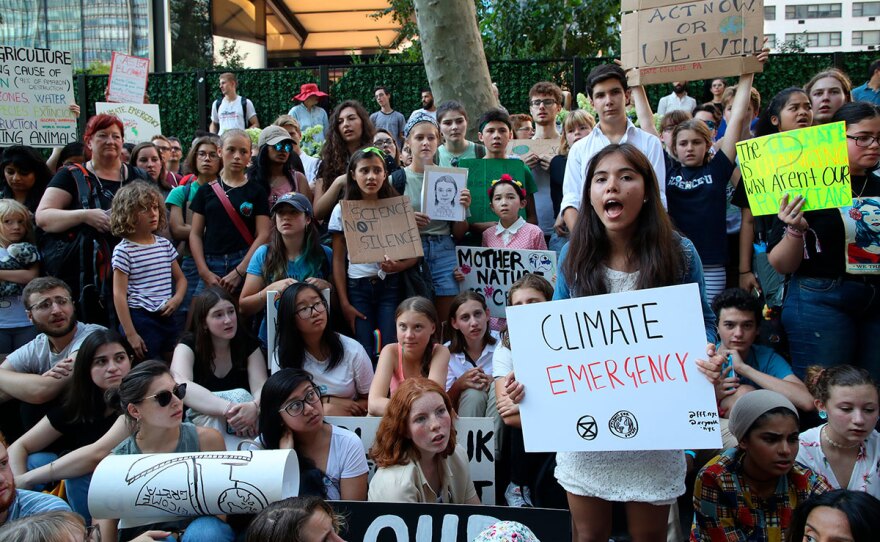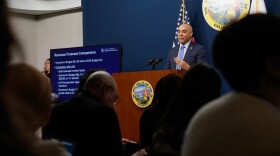KPBS Anchor Maya Trabulsi and BottomLine Marketing co-founder and SDSU marketing lecturer Miro Copic discuss some of the week’s top business stories.
Q: The big story this week was the World Economic Forum in Switzerland. There was a focus on climate change. How are corporations taking this more seriously?
RELATED: Is Davos As Bad As Critics Say? Global Leaders Weigh In
A: Yeah, this year there is a big focus in Davos on climate change and reducing the carbon footprint, and corporations are taking the lead. BlackRock, which is the largest manager of assets in the world, their CEO, Larry Fink, said climate risk is investment risk. He is concerned about the pace of climate change. When they looked at the issues around climate change, they look at the fires in California, the recent fires in Australia, and they changed their investment thesis. And so that means they may not be investing as much in fossil fuels and in mining. They'll look more into renewables or health care or other areas.
Two other companies made huge announcements. First one is Microsoft. Microsoft said by 2030, they're going to be carbon negative. And another company that we're all very familiar with did the same thing. Starbucks said that they're going to reduce their carbon footprint by 50% by 2030 by doing two things. They're going to cut water use and they're going to reduce the amount of trash they send to the landfill. So big news out of Davos.
Q: Locally, we saw progress toward creating what's being pitched as a grand central station for San Diego. How might an agreement with the Navy help local business?
RELATED: Navy, SANDAG Agreement Pushes San Diego ‘Grand Central Station’ Closer To Reality
A: Well, it's a huge agreement between San Diego, the San Diego Association of Governments and the U.S. Navy for the whole area along the 5 freeway in Old Town, those big airport hangars. What the Navy gets out of this whole deal is they're going to get a brand new state-of-the-art secure building for the 6,000 employees that are focused on cybersecurity. So in the end, this is going to be a big deal. They're going to sign the final agreement by the end of March. The economic impact studies, environmental impact studies are going to start on the government side and be done in December. And the state's going to do one as well done shortly afterwards. And then they can break ground.
Q: And the Super Bowl is a week away. We'll talk about the ads next week. But how much are people shelling out to attend this year?
RELATED: Kansas City Chiefs To Play San Francisco 49ers In Super Bowl LIV
A: Wow, it's almost a record, almost $8,900 per ticket is the average ticket price right now on Ticketmaster. In fact, what's interesting is the whole question of supply and demand and tickets. The last four or five years, tickets have ranged about $4,500. This is more than double. So it shows that there's a very high demand for the supply of tickets. The previous high in terms of ticket prices (was) with the 2015 Super Bowl. But it's hard to predict because if you go back and you look at history, in 2010, it was a great Super Bowl with two of the best quarterbacks in the league. Drew Brees and Peyton Manning. The tickets were only about $2,300. That was after the recession.
But big money. So if you want to go, 20% of the people buying come from California. Twenty one % percent are from Kansas and Missouri who are supporting the Chiefs. Most the rest are corporate tickets. It will be an exciting game next week.






